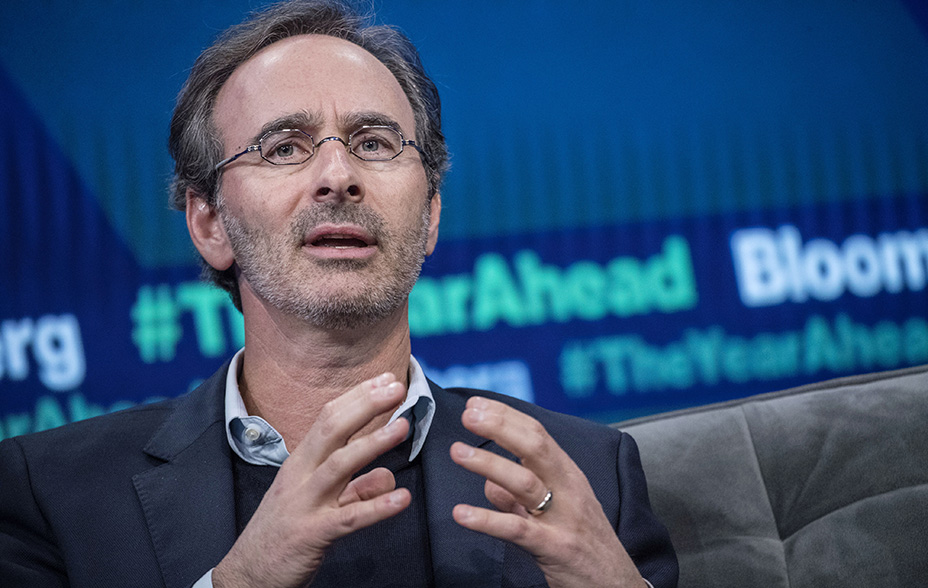July 2024
Article
4 minutes
Perspectives on Progress 10
Claire Shaw – Portfolio Director
- The results from Moderna's latest clinical trials
- How soon we could see the world’s most powerful quantum computer (PsiQuantum) and the next stop for flying taxis (Joby Aviation)
- Tempus AI goes public and Solugen secures a loan for its next big project

As with any investment, your capital is at risk.
Moderna
Executing on multiple fronts
It has been a rollercoaster ride for those of Moderna’s shareholders who have owned the stock through the pandemic and beyond. However, the company has recently shared three significant milestones. These appear to validate our investment hypothesis further regarding its messenger RNA (mRNA) platform’s potential to produce repeatable, scalable drugs in abundance and, in doing so, produce returns for shareholders.
First, Moderna got the US Food and Drug Authority’s (FDA) approval for its second product – a respiratory syncytial virus (RSV) vaccine for people over 60. This is the first time an mRNA vaccine has been approved for a disease other than Covid. And, as chief executive (CEO) Stéphane Bancel notes, "The approval builds on the strength and versatility of our mRNA platform.”
Second, Moderna and Merck’s joint melanoma treatment, which combines Moderna’s personalised cancer vaccine and Merck’s drug Keytruda, showed a 96 per cent survival rate and 75 per cent recurrence-free survival in a mid-stage trial, outperforming Keytruda alone. They are now advancing to a late-stage study to validate these results further.
Finally, Moderna announced that its combination vaccine for Covid-19 and seasonal flu was more effective than standalone shots in a late-stage trial. The company plans to file for US regulatory approval over the summer and hopes to enter the market in 2025.
We always said 2024 would be crucial for the company’s evolution and the de-risking of the investment case. The recent news aligns with our conviction that Moderna will become a multi-product company in the next few years.

Listen to the latest episode of the Invest in Progress podcast to hear first-hand the behind-the-scenes story of Moderna’s Covid-19 vaccine, including how Moderna’s app coded it in just 10 minutes.
Listen to the podcast here.
Joby Aviation
Launching air taxi services in the UAE
Joby Aviation has announced significant agreements with government agencies in the United Arab Emirates to help the region become a world leader in introducing air taxis.
Earlier this year, Joby signed an agreement with the Dubai government granting Joby exclusive rights to operate air taxis in Dubai for six years. The service is set to launch by early 2026 and will help Dubai meet its commitment towards sustainability.
This has been followed up with a similar agreement in Abu Dhabi. Here, Joby has the green light to develop a complete air taxi ecosystem, including training, infrastructure development, flight operations, and a manufacturing presence within Abu Dhabi.
These agreements demonstrate the incredible momentum behind clean flight adoption across the UAE and the attractiveness of Joby’s proposition – to revolutionise how people travel by offering faster, quieter and cleaner alternatives to road transportation.
Joby continues to impress us, given that it is trying to pull off an extraordinarily complex mission that poses engineering, manufacturing, regulatory and financial challenges. The question for a long-term investor would be: ‘is this the first step in decarbonising aviation to create a sustainable Boeing?'

Listen to the latest episode of the Invest in Progress podcast, to discover how close Joby Aviation is to making flying taxis a reality in high-traffic areas.
Listen to the podcast here.
PsiQuantum
Building the world's first utility-scale quantum computer
A wave of confidence and capital is racing across the quantum computing industry, with our private holding, PsiQuantum, a key beneficiary. The company recently announced that the Australian government had committed $620m (AUD$920m) to build a large-scale quantum computer in Brisbane. It is embarking on an ambitious plan to have the computer operational by the end of 2027.
Quantum computers represent an entirely new approach to computing. They can potentially solve very complex statistical problems beyond the limits of today’s computers.
In pharmaceuticals, it could better map interactions between a drug and its target, shaving time and costs off the development process. It could also unlock new approaches for tackling climate change, such as developing better and more efficient chemical catalysts. These, in turn, could reduce emissions and enable more robust carbon-capture-and-storage solutions.
As PsiQuantum’s CEO Jeremy O’Brien notes, “This platform will help solve today’s impossible problems and will serve as a tool to design the solutions we so desperately need to safeguard our future."
This endorsement from the Australian government establishes another critical milestone in PsiQuantum’s mission to deliver the world’s first functional quantum computer.

Solugen
Pioneering sustainable chemical manufacturing
Solugen, whose mission is to decarbonise the chemicals industry, has secured a $214m loan from the Department of Energy to construct a 'bioforge'. This new manufacturing platform will sustainably produce chemicals without fossil fuel inputs.
The financing will support the construction of a facility in Minnesota – dubbed ‘Bioforge Marshall’ – with Solugen stating that this announcement reinforces the US’s position as a pioneer in sustainable chemical manufacturing.
The project will also help re-shore industrial production capacity for chemicals produced mainly in other countries such as China, boosting domestic supply chain resilience and stabilising costs.
Having opened in 2021, Solugen’s first commercial production plant, ‘Bioforge Houston,’ has demonstrated an over 80 per cent reduction in greenhouse gas emissions compared to petroleum-based methods.
Bioforge Marshall will be six times the size of Houston and aims to produce bio-based chemical products for wastewater treatment, construction, agriculture and the energy sector.
Founder and CEO Gaurab Chakrabarti said he was excited to observe that the government is elevating biotechnology to the same level as more established clean technologies such as lithium-ion batteries.

Tempus AI
Makes its public debut, IPOing on the NASDAQ
Tempus AI, a private company held by Scottish Mortgage since 2018, debuted in the public markets in June 2024 at a valuation of circa $6bn.
Tempus AI defines its mission as “bringing the power of data and artificial intelligence to healthcare”. With a vast database of over seven million cancer patients’ clinical records, Tempus is applying machine learning to that dataset to enable physicians to make better treatment decisions – what they call “intelligent diagnostics”.
That same data set can also be de-identified and licenced to pharma companies and used in all stages, from drug discovery to drug development, as well as helping pharma companies match patients to clinical trials.
Tempus AI attempts to solve the problem that most healthcare data has historically been unconnected and lacks harmonisation and structure.
Despite the increase in the availability of healthcare data, physicians and researchers have largely been unable to leverage the data to improve patient care. By using AI at scale to rebuild the foundations of how data flows in and out of healthcare institutions, Tempus has built a platform that connects multiple stakeholders within the larger healthcare ecosystem, often in real-time, providing an opportunity for physicians to make data-driven decisions in the clinic.
We look forward to continuing to support Tempus in its public markets journey.

Risk factors
Unlisted investments such as private companies, in which the Trust has a significant investment, can increase risk. These assets may be more difficult to sell, so changes in their prices may be greater.
About the author - Claire Shaw
Portfolio Director
Claire Shaw is a portfolio director and plays a prominent role in servicing Scottish Mortgage’s UK shareholder base. Before joining in 2019, she spent over a decade as a fund manager with a focus on managing European equity portfolios for a global client base. With a background in analysing companies and communicating investment ideas, Claire is also responsible for creating engaging content that makes the Scottish Mortgage portfolio accessible to all its shareholders. Beyond that, she works closely with the managers, meeting with portfolio companies and conducting in-depth portfolio discussions with shareholders.
Important information
This communication was produced and approved at the time stated and may not have been updated subsequently. It represents views held at the time of production and may not reflect current thinking.
This content does not constitute, and is not subject to the protections afforded to, independent research. Baillie Gifford and its staff may have dealt in the investments concerned. The views expressed are not statements of fact and should not be considered as advice or a recommendation to buy, sell or hold a particular investment.
Baillie Gifford & Co and Baillie Gifford & Co Limited are authorised and regulated by the Financial Conduct Authority (FCA). The investment trusts managed by Baillie Gifford & Co Limited are listed on the London Stock Exchange and are not authorised or regulated by the FCA.
A Key Information Document is available by visiting our Documents page.
Any images used in this content are for illustrative purposes only.






